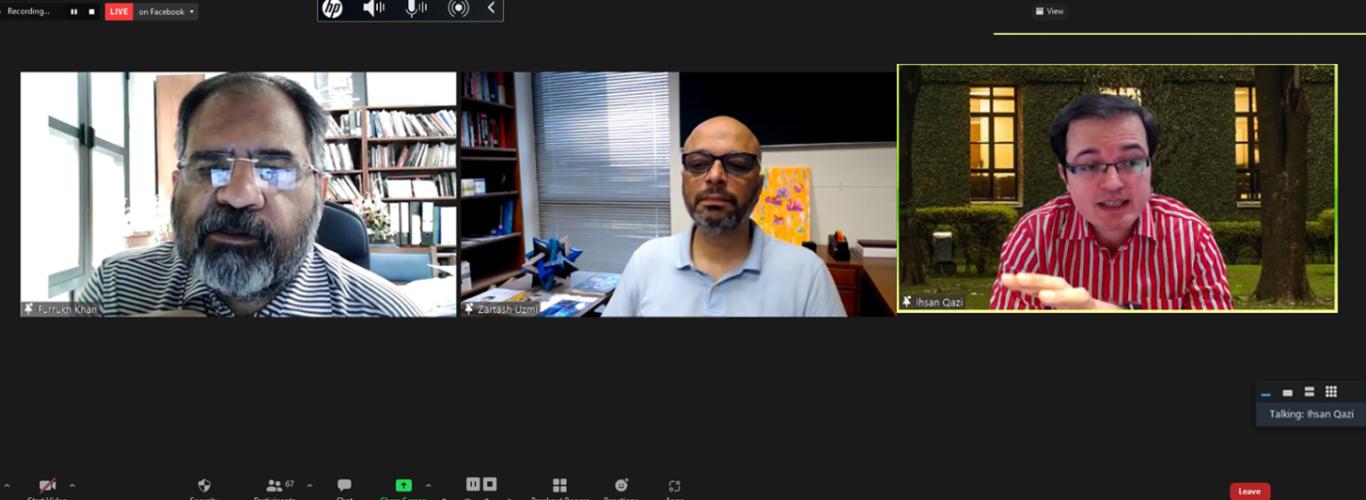Technology for People Initiative Holds Discussion on Evaluating the Spread and Countering of Misinformation in Pakistan
The Technology for People Initiative (TPI) at LUMS recently hosted a panel discussion, 'Fake News: Evaluating the Spread and Countering of Misinformation in Pakistan'. The discussion featured Dr. Ihsan Ayyub Qazi, Associate Professor, Syed Babar Ali School of Science and Engineering (SBASSE) and Dr. Zartash Afzal Uzmi, Associate Professor, SBASSE. The panel was moderated by Dr. Furrukh A. Khan, Associate Professor, Mushtaq Ahmad Gurmani School of Humanities and Social Sciences.
Dr. Qazi has worked on the spread of misinformation in Pakistan, it’s effect on digital literacy and ways of countering digital misinformation through educational interventions. He, along with another LUMS faculty member, won the highly competitive Facebook Integrity Foundational Research Award 2020 worth USD 50,000 for their proposal, ‘Understanding the Impact of Digital Literacy on Misinformation in Pakistan’.
Dr. Uzmi has conducted studies on the spread of misinformation relating to COVID-19 and its effect on perceptions and responsiveness.
Misinformation, described as false claims or information unsupported by evidence, has become quite prevalent and potentially harmful and costly with the presence of social media whereby billions can be reached within seconds. The scale and speed of the spread of information is unprecedented. “Misinformation includes both false claims as well as claims that are unsubstantiated by systematic evidence and that includes conspiracy theories, and the reason why they are so essential is because they can change people’s beliefs in many ways. This can lead them to actions that can harm them and the people around them,” explained Dr. Qazi.
The discussion centred around the role of socio-cultural factors in the spread and acceptance of misinformation, the types of misinformation prevalent in the country and factors which play a role in countering the spread of this information.
“Not all misinformation is harmful, but some of it can be harmful, especially for people with less privileged backgrounds, who are less educated, as they tend to believe some of that information which can be not just incorrect but also harmful,” commented Dr. Uzmi when asked about which segment of the population is more likely to be harmed from the spread of misinformation. Other factors include gender (females are more effected) and repeated exposure to information (positively correlated to believability), etc.
The discussion can be viewed at: https://fb.watch/bYyaHRwNC7/























